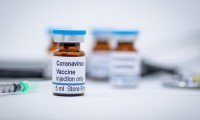-
Ddu College——WHO vaccine pre-certification How to conduct effective consultation?
- Source: drugdu
- 1,506
- August 25, 2021
-
Real-world data suggests Sputnik V vaccine is 97.6% effective, says RDIF
- Source: drugdu
- 228
- April 20, 2021
-
Positive results for Pfizer/BioNTech’s COVID-19 vaccine in 12-15 year olds
- Source: drugdu
- 359
- April 2, 2021
-
AZ’s vaccine safety review shows ‘no evidence’ of an increased risk of blood clots
- Source: drugdu
- 331
- March 16, 2021
-
New social media campaign launched to support COVID-19 vaccine roll-out in the UK
- Source: drugdu
- 370
- February 23, 2021
-
NHS has offered COVID-19 vaccine to all eligible care homes in England
- Source: drugdu
- 370
- February 2, 2021
-
How are Vaccines Stored?
- Source: drugdu
- 495
- December 6, 2020
-
Why do Vaccines need to be Refrigerated?
- Source: drugdu
- 560
- December 5, 2020
-
UK medicines regulator gives approval for first UK COVID-19 vaccine
- Source: drugdu
- 380
- December 3, 2020
-
Moderna’s Phase 3 COVE study for its COVID-19 vaccine
- Source: drugdu
- 160
- December 1, 2020
your submission has already been received.
OK
Subscribe
Please enter a valid Email address!
Submit
The most relevant industry news & insight will be sent to you every two weeks.













